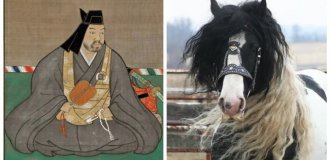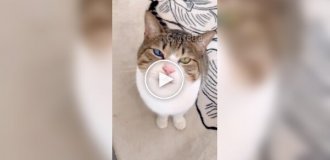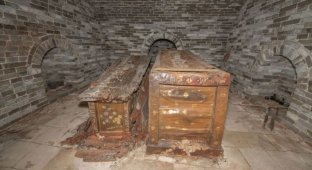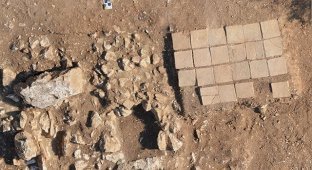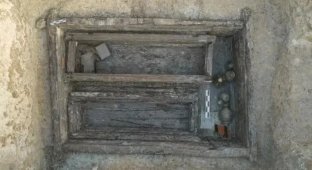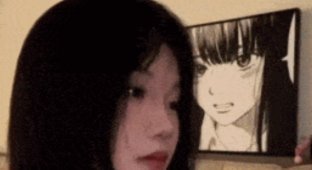Chinese emperors bequeathed to be buried in jade burial suits, which were predicted to grant them immortality. Such burials were often described in chronicles and literature, but... China could not find a single one. 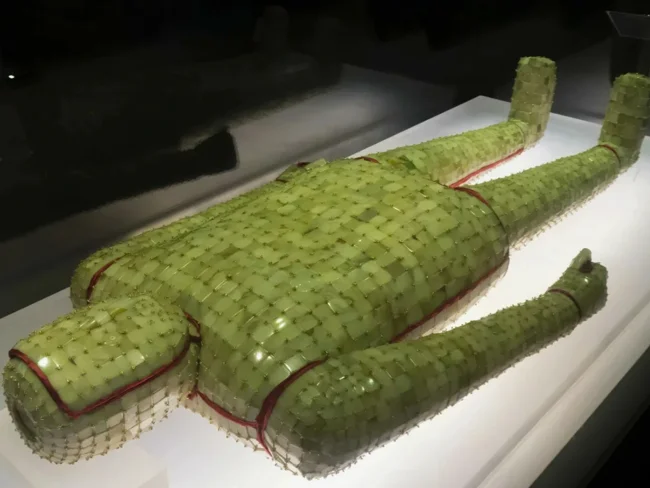
Looks like a golem according to Chinese folklore
For years, people argued about what they looked like and whether they actually existed. It was even believed that they were a myth.
Until 1958, while blasting rock to build a bomb shelter near Mount Lingshan, a group of Chinese soldiers discovered something unusual: the intact 2,000-year-old tomb of Liu Sheng, a king of the Western Han Dynasty, and his wife Dou Wan, who ruled before the Common Era.
The tombs were grandiose in scale, built like opulent underground palaces. Inside were 10,000 cultural relics – weapons, vessels, incense burners, but most importantly – two intact “Jade Burial Suits with Gold Thread.”
Burial Attire in China
Older people in China traditionally prepare special burial clothes before they die, known as shouyi (“longevity clothes”). 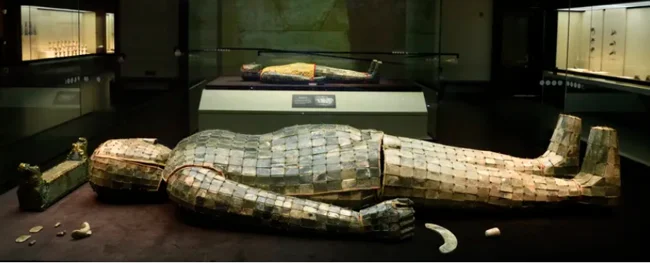
Even quite anatomical, for the emperor's belly
However, the nobles of the Han Dynasty preferred more exquisite burial attire - a jade burial suit. It was made entirely of jade pieces tied with gold, silver or copper threads. Of course, only the richest people could afford one.
The ruler's jade suit consisted of 2,498 jade plates and 1,100 grams of gold thread, while his wife's had 2,160 jade plates and 700 grams of gold thread. And they completely repeated the outlines of their owners' bodies, including the mask, repeating the shapes of the eyes and nose.
Why jade? 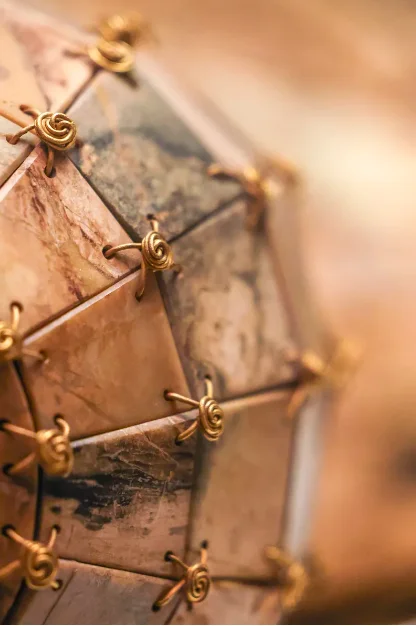
Golden threads that tied jade armor
Because in China it is a particularly revered material. Even before our era, it conquered the settlements of the ancient Chinese. It symbolized noble qualities such as purity and fortitude. People wore jade jewelry every day.
The Book of Rites of the Han Dynasty records that "A nobleman should not part with his jade without reason."
In addition to its value to the living, the ancient Chinese also believed that jade could protect the body from decay. 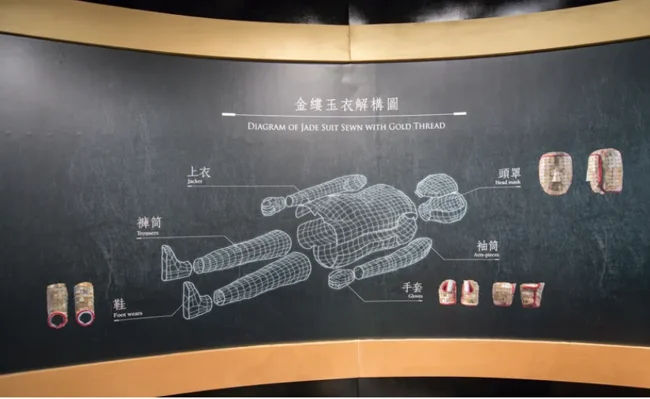
It was only in the 1960s that it was taken apart and studied
"If gold and jade are placed in nine holes, the dead will be immortal." So wrote one of the most famous doctors of the early era in China.
The so-called "nine holes" refer to the eyes, mouth, ears, two nostrils, genitals, and anus. Accordingly, jade burial suits often included components such as eye patches, nose plugs, ear plugs, mouthpieces, small boxes covering the genitals, and jade anal plugs. 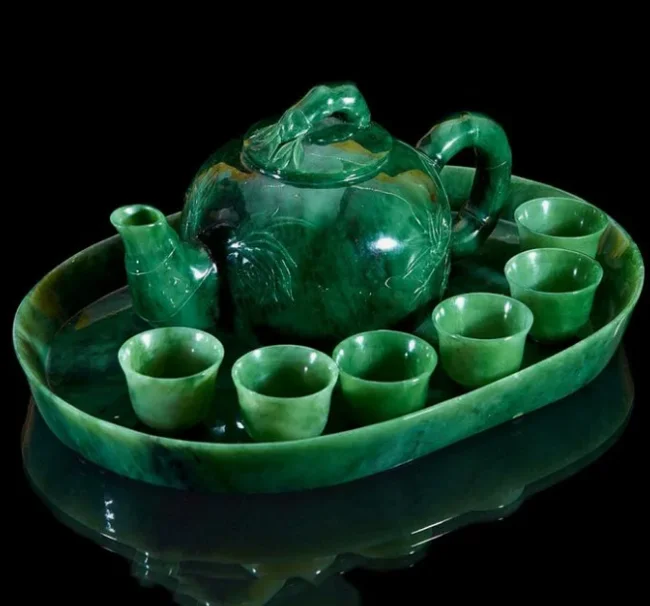
Jade is a sign of luxury and a wish for longevity, a good gift
For hundreds of years, rulers considered such burial suits obligatory to prepare for themselves during their lifetime.
Why did no one know or see these suits?
The emperors ordered to bury themselves and their spouses in such outfits for immortality. But two suits found in the last century proved that this does not protect the body from decomposition - the theory did not confirm itself.
But why were they found only now? Because the Chinese knew about the high value of jade even before they discovered the science of archeology. 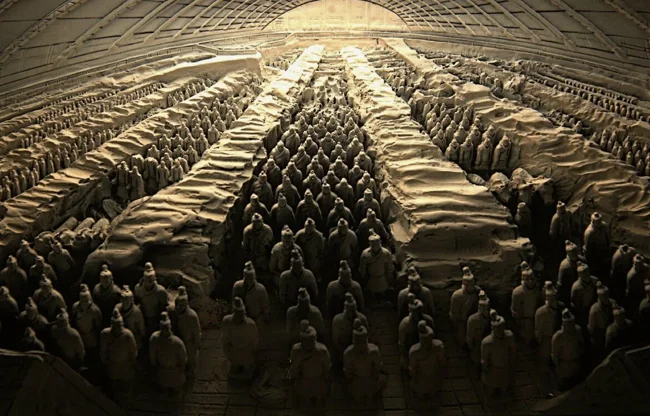
All kinds of burials in China were done on a grand scale
Every bandit who read at least one chronicle began to dream of opening such a tomb and getting rich. After a hundred years of jade burials, hundreds of years of the era of tomb robbers began. Not as romantic as Lara Croft.
Not only were mausoleums plundered, but they were also completely destroyed. Moreover, a good way to sell such a suit on the market is to sell it to the next ruler, because it is a ready-made jade suit. Of course, not first-hand, so that the thief is not executed as a showpiece, so that later he can still “wear” the suit he stole.
All the tombs of the Han Dynasty were plundered and even burned to return the jade suits and gold threads, as a result of which the bones completely disappeared. 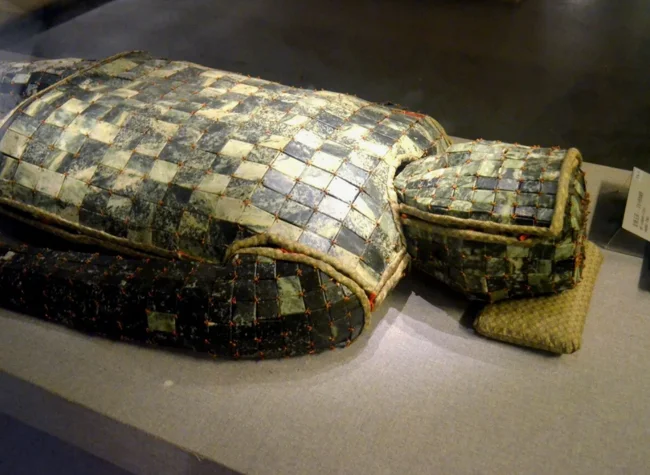
The Cycle of Jade Suits in Nature
And then Emperor Wen of Wei banned the use of jade burial suits in 222, ending a 400-year-old burial fashion in China.
Well, what's the point if they were passed on in a circle?
On the one hand, it's a great tradition. But the way it died out is pretty funny. At least Emperor Wen of Wei had the determination and willpower to stop this vicious circle, even if he dreamed of immortality.
Add your comment
You might be interested in:




